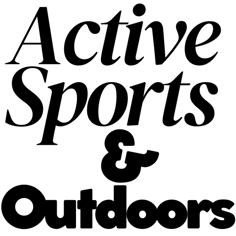Best Adaptive Sports for Kids with Disabilities
Blog post desSports play a vital role in children's physical, emotional, and social development. For kids with disabilities, adaptive sports provide a fantastic opportunity to stay active, build confidence, and develop friendships. Australia has a strong focus on inclusive sports, ensuring that children of all abilities can participate and thrive. Whether your child has a physical disability, sensory impairment, or developmental condition, there are plenty of adaptive sports available. This guide explores the best adaptive sports for kids with disabilities in Australia and where to find them.cription.
4/23/20253 min read


What Are Adaptive Sports?
Adaptive sports are modified versions of traditional sports that are designed to accommodate different abilities. These modifications may include:
Specialised equipment (e.g., wheelchairs for basketball or tennis)
Rule changes to suit different needs
Support staff and volunteers to assist participation
Many adaptive sports are competitive, while others focus on fun and social participation. Kids can play at a local club level or even aim for elite pathways, such as the Paralympics or Special Olympics Australia.
Best Adaptive Sports for Kids with Disabilities
Wheelchair Basketball
One of the most popular adaptive sports, wheelchair basketball allows kids to enjoy a fast-paced, exciting game while improving coordination and teamwork.
Best for: Kids with mobility impairments, spinal injuries, or limb differences
Where to Play: Wheelchair Basketball Australia, local community centres, and basketball clubs
Tip: Many programs provide sports wheelchairs so kids can try the sport before committing to specialised equipment.
Swimming
Swimming is one of the most inclusive sports, offering benefits for kids with physical disabilities, sensory impairments, and autism. Adaptive swimming programs provide flotation devices, support instructors, and modified techniques to ensure every child can participate safely.
Best for: Kids with cerebral palsy, autism, hearing impairments, or mobility challenges
Where to Play: Swimming Australia’s Inclusive Swimming Programs & local pools
Tip: Look for hydrotherapy pools that offer warm water and sensory-friendly environments.
Blind Soccer (Football 5-a-side)
For kids with vision impairments, blind soccer (also called 5-a-side football) is a great way to develop coordination and teamwork. The ball has bells inside to help players track its movement, and coaches provide verbal cues for guidance.
Best for: Kids with low vision or blindness
Where to Play: Blind Sports Australia, Football Australia
Tip: Some clubs offer sighted guide volunteers to assist beginners.
Para Athletics (Track & Field)
Para athletics includes events like running, wheelchair racing, long jump, and shot put, with adaptations for different abilities. It’s a fantastic option for kids who enjoy individual sports and want to develop speed, strength, and coordination.
Best for: Kids with mobility impairments, limb differences, or visual impairments
Where to Play: Athletics Australia, Little Athletics Inclusive Programs
Tip: Running blades or guided running for visually impaired athletes are available for kids who need extra support.
Adaptive Cycling
Adaptive cycling offers different types of bikes, including handcycles, tandem bikes (for vision-impaired kids), and tricycles (for extra stability). It’s a fantastic way for kids to develop independence and confidence.
Best for: Kids with cerebral palsy, spinal cord injuries, or balance difficulties
Where to Play: Cycling Australia, Para Cycling Clubs
Tip: Some programs offer bike rentals, so kids can try different models before purchasing one.
Goalball
Goalball is a team sport designed specifically for children with vision impairments. Players wear blackout masks to level the playing field, and they track the ball using sound. The goal is to block and throw the ball into the opponent’s net.
Best for: Kids who are blind or have low vision
Where to Play: Blind Sports Australia, Vision Australia Sports Clubs
Tip: It’s a great sport for both competitive and recreational players!
Horse Riding (Equestrian Therapy)
Horse riding can be therapeutic and enjoyable for kids with disabilities, helping to improve balance, coordination, and confidence. Many Riding for the Disabled (RDA) centres in Australia offer structured programs for children with special needs.
Best for: Kids with autism, cerebral palsy, Down syndrome, or anxiety
Where to Play: Riding for the Disabled Australia (RDA)
Tip: Some programs focus on therapy-based riding, while others offer competitive para-equestrian training.
Wheelchair Tennis
Wheelchair tennis follows the same rules as traditional tennis, except the ball is allowed two bounces instead of one. It’s a great sport for kids with lower limb impairments and helps develop coordination and agility.
Best for: Kids with spinal injuries, limb differences, or mobility impairments
Where to Play: Tennis Australia’s Wheelchair Tennis Program
Tip: Many tennis clubs offer adaptive coaching and specialised wheelchairs.
Boccia
Boccia is a precision ball sport similar to lawn bowls but designed for kids with severe physical disabilities. It’s a great sport for developing focus, hand-eye coordination, and strategy.
Best for: Kids with cerebral palsy, muscular dystrophy, or limited mobility
Where to Play: Boccia Australia
Tip: Kids can play individually or in teams, making it a fun and social game!
Special Olympics Programs
The Special Olympics Australia offers multiple sports for children with intellectual disabilities and autism, including:
Basketball
Athletics
Soccer
Gymnastics
Swimming
Best for: Kids with intellectual disabilities or autism
Where to Play: Special Olympics Australia
Tip: These programs focus on participation, confidence-building, and social inclusion rather than just competition.
How to Get Started in Adaptive Sports
Find a Local Club – Many community sports clubs offer inclusive programs. Search through Sport Australia or local councils.
Apply for Funding – The NDIS (National Disability Insurance Scheme) may provide funding for sports participation and equipment.
Try Different Sports – Let your child explore multiple options before committing. Many clubs offer free trial sessions.
Join an Inclusive School Program – Many Australian schools partner with Sports4All and Disability Sports Australia.
Final Thoughts
Sports should be accessible to every child, regardless of ability. With so many adaptive sports programs available in Australia, kids with disabilities can enjoy the benefits of physical activity, social inclusion, and personal achievement.
Explore
Discover sports and outdoor activities in Australia.
Connect
Engage
© 2025. All rights reserved.
